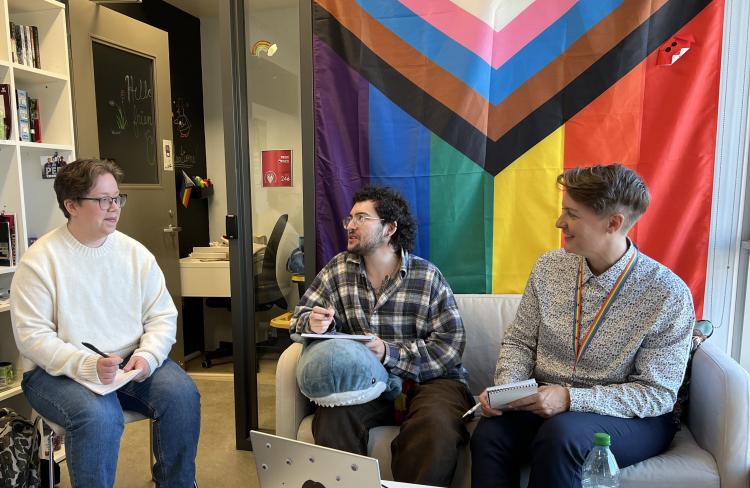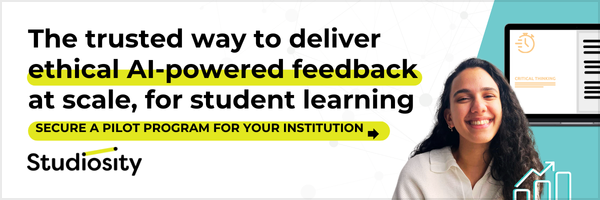Building a sense of community is one way to improve the educational experiences of 2SLGBTQIA+ post-secondary students, Kwantlen Polytechnic University (KPU) researchers have found.

From left to right : Liam Ruel, Camille Bédard and Dr. Tara Lyons
"2SLGBTQIA+ post-secondary students have a number of unmet needs and challenges that they're facing," says Dr. Tara Lyons, a criminology instructor at KPU. "They're reporting feeling less welcome and less safe in classes, having more mental health concerns, a higher level of food insecurity and much more."
"We're finding that these challenges are even more complex among different demographics, such as international students, students with disabilities, BIPOC students and students in the trades."
The goal of the research is to present recommendations for post-secondary administrators, service providers and educators on how they can better support 2SLGBTQIA+ students.
The study is being led by Dr. Lyons; several undergraduate students at KPU, including Liam Ruel, Camille Bédard, Kai Barcellos Luna and Destiny Lang; and Luka Wall, Manager of Institutional Research at KPU's Office of Planning & Accountability.
"We want to hear directly from students to get recommendations on how to make their experiences better," says Liam Ruel. "I think there's this idea that a lot of work has been done and a lot of progress has been made, but it's important to highlight the fact that students are still facing a lot of barriers that need to be addressed."
What began as a small exploratory study at KPU has since expanded to include six more B.C. post-secondary institutions.
Dr. Lyons says students from KPU and the other institutions in the study are mostly commuting to campus, and not necessarily living on residence.
"Our early findings have revealed many students were having trouble finding a community and feeling a sense of belonging on campus," she says.
One of the recommendations from the study was to create a safe space or group for students on campus. This was soon implemented at KPU when student researchers on the team founded the KPU Pride Society.
"The importance of finding community and having queer and trans friends was something that came up consistently in our focus groups," says Bédard. "So we wanted to create a space where 2SLGBTQIA+ students can connect with peers who understand their experience."
The next steps for the team will include analyzing the data from focus groups and surveys from students at all seven schools, and presenting their findings at conferences this spring.
"We want to share the information as broadly as possible and hopefully have it impact not only KPU but other post-secondary institutions as well," says Dr. Lyons.
This project has been funded in part by KPU's Student Research and Innovation Grant program.










